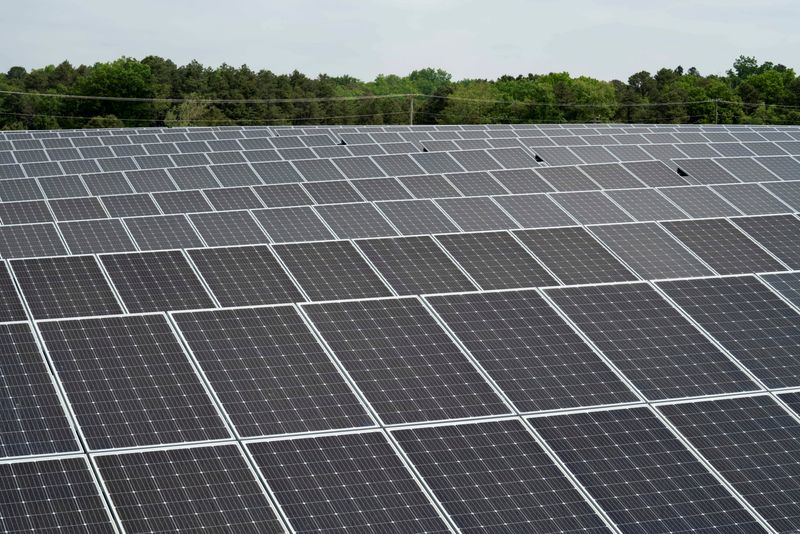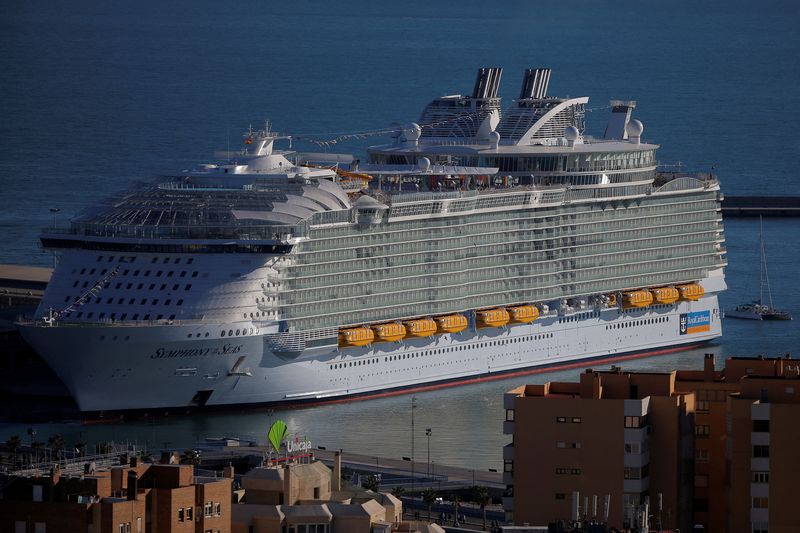
FILE PHOTO: Rows of solar panels at the Toms River Solar Farm which was built on an EPA Superfund site in Toms River, New Jersey, U.S., 26 May, 2021. Picture taken May 26, 2021. REUTERS/Dane Rhys/File Photo
February 4, 2022
By Jarrett Renshaw and Nichola Groom
(Reuters) -U.S. President Joe Biden extended Trump-era tariffs on imported solar energy equipment by four years on Friday, but in a major concession to installers he also eased the terms to exclude a panel technology dominant among big U.S. projects.
The decision represented a balancing act by the Biden administration to meet the demands of two important political constituencies: union labor, which supports import restrictions to protect domestic jobs, and clean energy developers keen to access cheap overseas supplies.
The four-year extension of the tariff exempts so-called bifacial panels, which can generate electricity on both sides and are favored by large scale developers, according to a senior administration official. That technology was nascent when the tariffs were first imposed by Trump but it is now used in most large U.S. solar facilities.
The extension also doubles the import quota on solar cells – the main components of panels – to 5 gigawatts, and opens a pathway for duty-free supply from neighboring Canada and Mexico.
Auxin Solar, a San Jose, California-based domestic solar producer that sought an extension of the tariffs, said it was disappointed.
“The decision to exclude bifacial modules and to expand the tariff rate quota on cells reduces the value of the safeguard to not much more than the paper it is written on,” Auxin Chief Executive Mamun Rashid said in a statement.
The American Clean Power Association, a renewable energy trade group, praised the administration’s decision, calling it “a win for jobs and a win for the President’s climate agenda.”
Former President Donald Trump imposed a four-year tariff regime on solar imports in 2018, using authority under section 201 of the 1974 trade act, in an effort to create manufacturing jobs in the U.S. solar sector. The tariffs started at 30% and declined to 15% in the final year.
They had been set to expire on Feb. 6, but Auxin and four other domestic solar manufacturers last year sought the extension, saying their products were still unable to compete with overseas-made goods that dominate the U.S. market because of import stockpiling by companies before the tariffs took effect, the coronavirus pandemic and cost inflation.
Industry trade groups countered that the continuation of the tariffs would threaten Biden’s goal to dramatically expand clean energy and decarbonize the U.S. electricity sector by 2035 to fight climate change.
Most panels installed in the United States are made in Asia, and solar companies rely on those cheap imports to compete with energy produced from fossil fuels.
The U.S. International Trade Commission said in November after a three-month review that the tariffs were still necessary to prevent harm to the U.S. solar manufacturing industry. But the president makes a final decision on whether to provide relief to producers.
“The President agreed with the determination of the U.S. International Trade Commission and decided to extend the Section 201 Safeguards for four more years to prevent or remedy serious injury to the U.S. solar manufacturing sector,” the senior administration official said.
(Reporting by Jarrett Renshaw and Nichola GroomEditing by Richard Valdmanis, Edmund Blair, Mark Potter and Frances Kerry)

